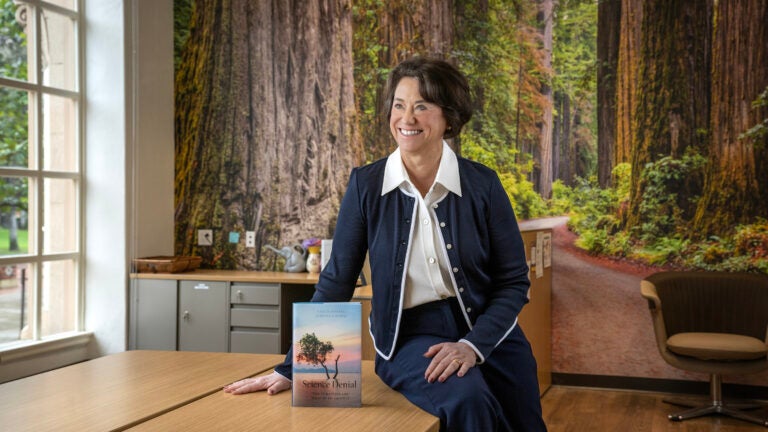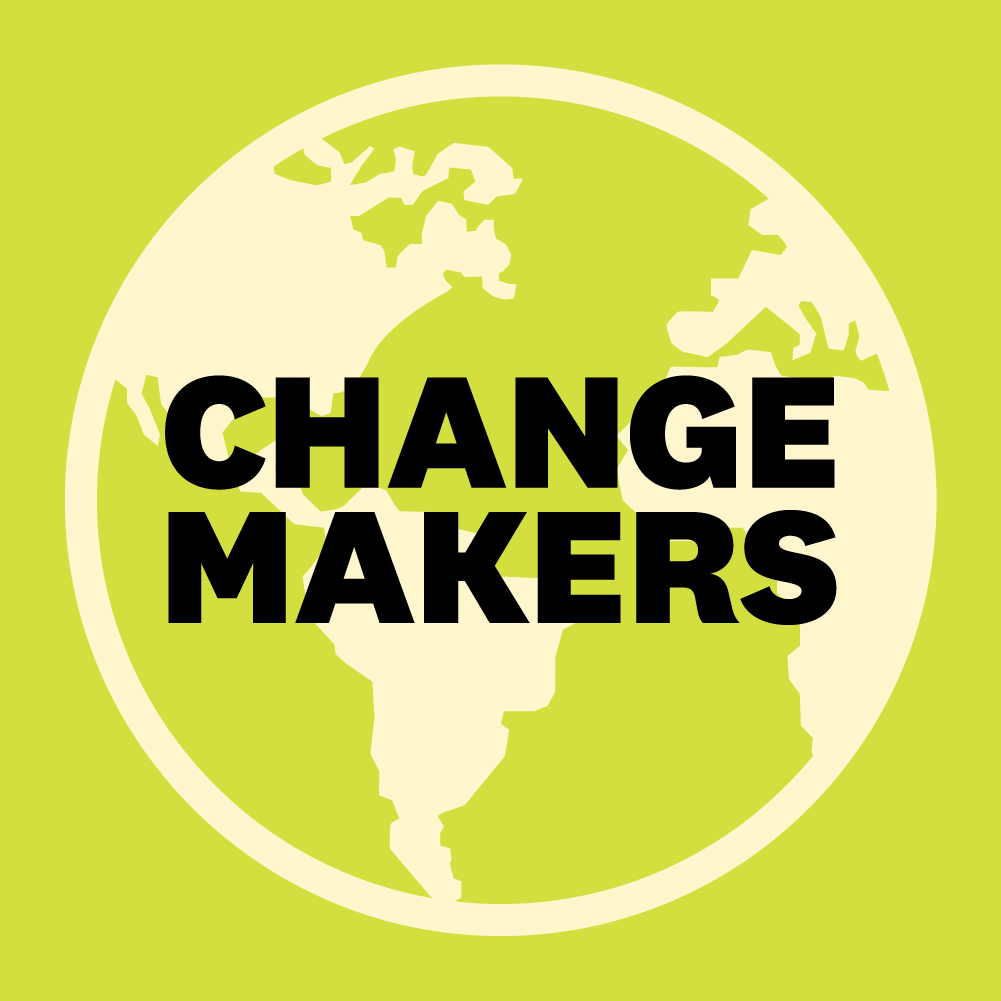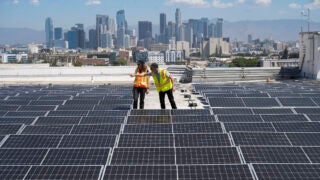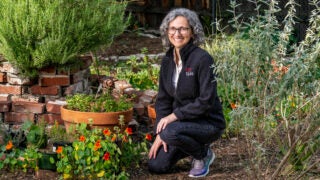
Professor Gale Sinatra’s research on climate change denial became particularly personal in January, when she lost her home to the Eaton wildfire. (USC Photo/Gus Ruelas)
Changing how we talk about climate change: Gale Sinatra
USC Distinguished Professor Gale Sinatra’s long-standing mission to help people better understand climate change became deeply personal after the January wildfires.
EARTH MONTH: Work in climate science education and communication intensifies after educator and author Gale Sinatra’s Altadena home and neighborhood are destroyed in the Eaton fire.
Throughout April, USC Trojan Family Magazine will feature Trojans who have made a significant difference in sustainability at the University of Southern California.
 USC Distinguished Professor Gale Sinatra has long been teaching and writing about climate change, science education and communication — including the psychological impact of displacement from climate-related disasters.
USC Distinguished Professor Gale Sinatra has long been teaching and writing about climate change, science education and communication — including the psychological impact of displacement from climate-related disasters.
“Now, I am a climate refugee myself,” says Sinatra, whose home in Altadena was destroyed by the Jan. 7 Eaton fire, the second-most destructive wildfire in California history.
“I lost my neighborhood,” she says. “I lost my yoga studio, my pizza place, my favorite restaurant, my coffee shop. You lose an entire community. I think that’s what people don’t understand about the impact of climate-enhanced disasters like the Eaton Canyon wildfire.”
The professor of education and psychology at the USC Rossier School of Education and the USC Dornsife College of Letters, Arts and Sciences uses her research to understand the cognitive and emotional factors that influence people’s attitudes toward environmental issues.
Losing home to fire informs teaching
Her recent personal loss has made teaching in these fields profoundly more personal.
“How could I not talk about it?” says Sinatra, who holds the Stephen H. Crocker Chair and is the associate dean for research with USC Rossier. “I’m not going to lie: Losing my home to a climate-enhanced disaster has tempered my optimism a bit. But there are reasons to maintain optimism because the sustainability movement has the momentum.”
Her contributions to building that momentum include co-authoring the 2021 book Science Denial: Why it Happens and What to Do About It with Middlebury College Professor Emerita of Psychology Barbara Hofer, publishing nearly 100 peer-reviewed articles and teaching 19 courses — and counting — on learning and cognition.
Within the book, Sinatra and Hofer explore doubt, denial, resistance and the psychological factors that influence people’s understanding of science.
Sinatra has learned that people often struggle with climate change because they find “the enormity of the issue” overwhelming.
“Even if you understand it’s happening, you might be anxious, you might be angry, you might be frustrated,” she says. “These emotions don’t necessarily help you to understand climate impacts and how to act on them.”
How to talk about climate change
The book features recommendations for individuals, educators, scientists, climate communicators and policymakers about how to interact with people who might not be initially receptive to the science that explains climate change.
“When you talk to other folks, it’s about honoring their often legitimate concerns with climate change,” Sinatra says. “It’s about listening more than talking, clearing up misinformation and hearing them out. Then it’s about trying to introduce them to some of the information that is more accurate and more scientifically aligned.”
In addition to her teaching and writing, Sinatra feels she makes even more of an impact as part of USC President Carol Folt’s Presidential Working Group on Sustainability in Education, Research, and Operations.
“We are trying to get sustainability more integrated into the USC undergraduate curriculum,” says Sinatra, co-chair of the group’s education committee. “In part because we know students need it, but also because our students have been asking for it. It will prepare them better for future jobs because no matter what those jobs are, they will have to deal with sustainability issues.”
Greater prevention measures are needed
Sinatra can’t predict if the recent fires will significantly shift people’s views on climate change, but she strongly believes they should.
“Los Angeles has had multiple fires like this, and we have these Santa Ana winds pretty regularly,” she says. “Extreme weather events have enhanced those winds due to climate impact. We aren’t doing anything to prepare for the new normal, and that’s a problem.”
She hopes these disasters spur greater adoption of fire-resistant measures such as the burying of power lines, the construction of firebreaks (a gap in vegetation) to slow or stop the progress of fire, and home hardening, which involves upgrading or retrofitting some components of a home to make it more resistant to embers and flames.
Sinatra says she is encouraged that it is now cheaper to use alternative forms of energy such as solar and wind than it is to use fossil fuels.
“Eventually, it just will make more sense for people,” she says. “I’m also optimistic because our young people, our students here at USC and students across the country, are very, very concerned about their future in a climate-uncertain world. They’re passionate about this issue, and we are trying to do whatever we can here at USC to prepare our students to confront the challenges of a changing climate.”



